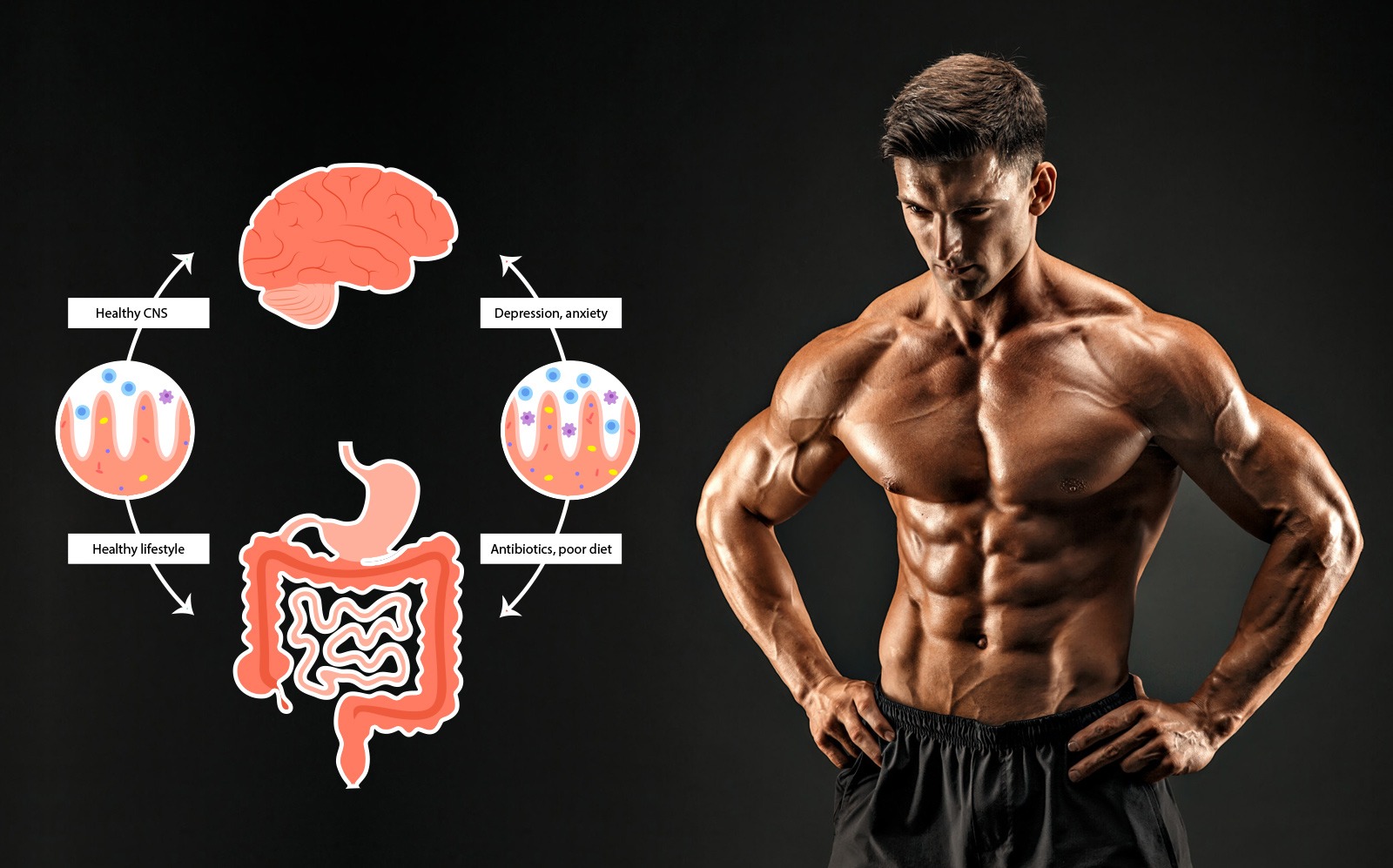
Foods to avoid to keep your body lean and energetic
Avoiding foods like sugary drinks, processed foods, fast food, and refined carbs is crucial for maintaining a lean and energetic body. These foods can cause weight gain, energy crashes, and hinder your fitness goals. Opt for whole foods, lean proteins, and healthy fats for sustained energy and a lean physique.
💪 Fitness Guru
42 min read · 18, Apr 2025

Introduction
Achieving a lean and energetic body requires more than just exercise. The foods we consume play a significant role in determining our energy levels, body composition, and overall health. While it's essential to focus on nutrient-dense foods that fuel the body, it's equally important to be mindful of what foods to avoid. Some foods may hinder your progress by contributing to weight gain, sluggishness, or low energy. In this article, we’ll explore various foods to steer clear of if you want to keep your body lean and full of energy. Maintaining a lean and energetic body requires not just regular exercise but also being mindful of the foods we consume. Certain foods, while they may seem tempting or convenient, can hinder your efforts to stay fit and vibrant. For starters, refined carbohydrates such as white bread, pastries, and sugary cereals are among the top offenders. These foods are quickly digested, leading to spikes in blood sugar levels followed by crashes that leave you feeling sluggish. In addition to that, they offer little in terms of nutritional value, and the excess glucose is often stored as fat, contributing to weight gain. Similarly, sugary drinks like sodas, energy drinks, and sweetened coffees are another major issue. They are packed with empty calories and can lead to a rapid increase in blood sugar, causing energy fluctuations and weight gain. Even though they may give you a temporary energy boost, the subsequent crash often leads to fatigue, making you crave more sugar. Fast food, such as burgers, fries, and fried chicken, is notorious for being high in unhealthy fats and calories. These foods are not only low in nutrients but also loaded with trans fats, which are harmful to cardiovascular health and can lead to an increase in body fat, particularly around the abdomen. Highly processed snacks like chips, cookies, and candy also fall into the category of foods to avoid. They often contain artificial additives, preservatives, and excessive amounts of unhealthy fats and sugars. These ingredients can cause inflammation in the body, lead to digestive issues, and promote fat storage, making it difficult to maintain a lean physique. Moreover, these types of foods lack fiber, which is essential for good digestion and satiety. Eating large amounts of processed meats, such as sausages, hot dogs, and deli meats, can also hinder your progress. These products are typically high in sodium, preservatives, and unhealthy fats, which can lead to water retention, bloating, and increased fat storage. Sodium also affects your body’s ability to regulate fluid balance, leading to feelings of heaviness and sluggishness. When it comes to dairy, full-fat options like cheese and whole milk should be consumed in moderation. While dairy products do provide essential nutrients like calcium, they can also be high in saturated fats, which contribute to weight gain if eaten excessively. Additionally, high-fat dairy products can lead to higher levels of LDL (bad) cholesterol, which is harmful to your heart. Alcohol, although often enjoyed socially, can be a significant roadblock on the path to a lean body. Alcohol is calorie-dense and is often accompanied by unhealthy snacks like chips or fried foods, further contributing to weight gain. Additionally, alcohol can impair your metabolism, causing your body to burn fat more slowly. It also disrupts your body’s ability to absorb nutrients, leaving you feeling drained and lethargic the following day. Another food group that can derail your health goals is foods high in refined sugars. These can be found in cakes, cookies, candy, and other processed desserts. When you consume refined sugars, your body quickly turns them into glucose, which leads to spikes in insulin levels and promotes fat storage. Over time, this can not only lead to weight gain but also increase the risk of developing insulin resistance, which is a precursor to diabetes. Canned soups and sauces are often packed with sodium and preservatives, which can lead to bloating, water retention, and high blood pressure. These foods tend to be low in nutritional value, offering little more than empty calories and can make it harder for your body to maintain a healthy, lean appearance. Certain types of oils, particularly vegetable oils that are high in omega-6 fatty acids, can also contribute to inflammation and fat gain. Although fats are an essential part of a balanced diet, consuming too many omega-6-rich oils and not enough omega-3 fatty acids can lead to an imbalance that promotes fat storage. Fried foods, which are typically cooked in oils high in omega-6, should be avoided or minimized for the sake of your health and fitness. Additionally, even though fruits are healthy, it’s important to be mindful of the types of fruit you consume if your goal is to stay lean. Some fruits, such as bananas, grapes, and mangoes, are high in natural sugars and can contribute to weight gain when eaten in excess. While fruits provide essential vitamins and fiber, they should be consumed in moderation, especially if you are working on reducing body fat. Finally, certain types of nuts, like cashews and macadamia nuts, while healthy in small amounts, are high in calories and fats, making it easy to overeat them. While they provide good fats and protein, their calorie density can hinder your weight loss goals if you consume them in excess. Even though they are nutritionally dense, the sheer volume of calories in a small serving can add up quickly, especially if you are trying to maintain a calorie deficit for fat loss. Eating a balanced diet rich in whole foods such as vegetables, fruits, lean proteins, and whole grains is key to maintaining a lean and energetic body. But it's equally important to avoid or minimize the consumption of these foods that are detrimental to your health. By steering clear of refined carbs, sugary drinks, fast food, processed snacks, processed meats, full-fat dairy, alcohol, refined sugars, canned soups, certain oils, and some types of fruits and nuts, you can give your body the best chance to stay lean, energetic, and in optimal health.
1. Refined Carbohydrates and Sugars
Refined carbohydrates, such as white bread, pastries, and sweets, are often the first culprits when it comes to gaining excess weight and feeling sluggish. These processed foods are stripped of their natural fiber, leading to quick spikes in blood sugar levels followed by crashes, leaving you feeling tired and irritable. Consuming large amounts of refined sugars and carbs promotes fat storage, particularly in the abdominal region.
Why Avoid Them?
- They cause blood sugar spikes and crashes.
- Increase cravings for more sugary and unhealthy foods.
- Can lead to insulin resistance and fat accumulation.
- Offer little to no nutritional value.
Better Alternatives: Instead of reaching for sugary snacks or refined bread, opt for whole grains like oats, quinoa, and brown rice, which provide more fiber, slow down digestion, and help keep blood sugar levels stable.
2. Fried Foods and Fast Food
Fried foods and fast food items, such as fried chicken, French fries, and burgers, are high in unhealthy fats, particularly trans fats. These foods are not only calorie-dense but also contribute to inflammation in the body. Consuming them regularly can lead to weight gain, sluggish digestion, and a lack of vitality.
Why Avoid Them?
- High in unhealthy trans fats and calories.
- Promote fat accumulation and increase the risk of heart disease.
- Can leave you feeling heavy and lethargic.
- Lack essential nutrients needed for energy.
Better Alternatives: Go for grilled or baked options instead of fried foods. Opt for homemade meals with healthy fats like avocado, olive oil, and nuts to nourish your body without the added unhealthy fats.
3. Processed Meats
Processed meats such as sausages, hot dogs, and bacon are convenient but often contain high amounts of saturated fats, sodium, and preservatives. These additives can contribute to bloating, low energy, and may even cause weight gain over time. Additionally, these foods are linked to an increased risk of chronic diseases like heart disease and cancer.
Why Avoid Them?
- High in sodium and preservatives.
- Can cause bloating and digestive issues.
- Linked to increased risk of chronic diseases.
- Provide minimal nutritional value.
Better Alternatives: Choose lean protein sources like chicken breast, turkey, or plant-based proteins such as tofu and lentils. These options provide essential nutrients without the excess fats and sodium.
4. Sugary Beverages and Energy Drinks
Sugary drinks, including soda, fruit juices, and energy drinks, are often packed with empty calories that offer no nutritional value. They provide a quick energy boost but lead to an inevitable energy crash shortly after. The excessive sugar content can also promote fat storage, especially around the belly area.
Why Avoid Them?
- Loaded with empty calories and sugar.
- Lead to blood sugar imbalances and energy crashes.
- Contribute to weight gain, especially around the midsection.
- Offer little to no nutrients or hydration.
Better Alternatives: Stay hydrated with water, herbal teas, or infused water with lemon and cucumber. These options keep you refreshed without the added sugar and empty calories.
5. High-Calorie Snacks and Junk Food
While it might be tempting to snack on chips, cookies, and candy, these highly processed foods are typically high in unhealthy fats, sugar, and salt. They often provide little satiety, causing you to overeat and consume more calories than your body needs. This leads to weight gain and a lack of energy.
Why Avoid Them?
- High in calories, sugar, and unhealthy fats.
- Provide little nutritional value.
- Lead to overeating and poor eating habits.
- Can cause energy slumps and poor digestion.
Better Alternatives: Choose healthier snack options like fresh fruit, nuts, seeds, or whole-grain crackers. These snacks are rich in fiber and protein, helping you stay full and energized throughout the day.
6. Dairy Products High in Fat
Full-fat dairy products like whole milk, cream, and certain cheeses can be high in saturated fats. These fats are not conducive to maintaining a lean body and can slow down your metabolism, making it harder to burn fat effectively. Additionally, dairy can sometimes lead to bloating or digestive discomfort, especially for those who are lactose intolerant.
Why Avoid Them?
- High in saturated fats and calories.
- Can slow down metabolism and fat-burning processes.
- May cause bloating or digestive issues for some individuals.
Better Alternatives: Opt for low-fat or plant-based dairy options like almond milk, soy milk, or Greek yogurt. These alternatives provide calcium and protein without the excess fat.
7. Alcohol
Alcohol is not only calorie-dense but also affects your body's ability to burn fat efficiently. It can interfere with the liver's ability to process fat and toxins, leading to fat accumulation, particularly in the abdominal area. Additionally, drinking alcohol may lower inhibitions, making it easier to overeat unhealthy foods.
Why Avoid It?
- Alcohol is high in empty calories.
- Interferes with the body's fat-burning processes.
- Can lead to weight gain, especially in the abdominal region.
- Impairs judgment, often leading to poor food choices.
Better Alternatives: If you want to maintain a lean body, it's best to limit alcohol consumption or avoid it altogether. Opt for sparkling water or a herbal drink for a refreshing, alcohol-free alternative.
8. Packaged Baked Goods
Packaged baked goods, such as store-bought cakes, muffins, and pastries, often contain refined flour, sugar, and unhealthy fats. These items are highly processed and can lead to blood sugar spikes, increased cravings, and weight gain. They are also typically low in nutrients, making them a poor choice for anyone looking to stay lean and energetic.
Why Avoid Them?
- High in refined flour, sugar, and unhealthy fats.
- Lack essential nutrients and fiber.
- Can contribute to blood sugar imbalances and weight gain.
Better Alternatives: Try baking your own treats using whole-grain flour, natural sweeteners like honey or maple syrup, and healthy fats such as coconut oil or avocado.
9. Artificial Sweeteners
While artificial sweeteners may seem like a healthy alternative to sugar, they can have a negative impact on your metabolism and cravings. Studies have shown that consuming artificial sweeteners can lead to an increased desire for sweet foods, making it harder to maintain a balanced diet and lean body.
Why Avoid Them?
- Can increase cravings for sweet foods.
- May disrupt metabolism and gut health.
- Have been linked to potential health risks when consumed in large quantities.
Better Alternatives: Opt for natural sweeteners like stevia or monk fruit. These alternatives provide sweetness without the negative effects of artificial chemicals.
10. Salty Foods and Processed Snacks
Salty foods, such as potato chips, pretzels, and canned soups, are often loaded with sodium. Excess sodium can lead to water retention, bloating, and increased blood pressure. Additionally, these snacks are typically low in nutrients and offer little benefit to your body.
Why Avoid Them?
- High in sodium, causing water retention and bloating.
- Can contribute to high blood pressure and poor heart health.
- Provide little nutritional value and may lead to unhealthy cravings.
Better Alternatives: Choose fresh, whole foods and season them with herbs and spices for flavor. If you're craving something crunchy, opt for roasted nuts or homemade popcorn with a sprinkle of sea salt.
Conclusion
Maintaining a lean and energetic body is a combination of making smart food choices and staying active. By avoiding foods that are high in refined sugars, unhealthy fats, and empty calories, you can support your body's natural fat-burning processes and enhance your overall vitality. Focus on nutrient-dense options like whole grains, lean proteins, healthy fats, and fresh fruits and vegetables to keep your body in optimal condition. Remember, it's not about perfection but about making better choices that contribute to a healthier lifestyle. Keep your energy levels high, your body lean, and your mind clear by choosing the foods that truly nourish you.
Q&A Section
1. What are the foods that contribute to weight gain and should be avoided for a lean body?
Ans: Foods high in refined sugars, such as sweets, pastries, and sugary beverages, contribute to weight gain by increasing insulin levels and promoting fat storage.
2. How do processed foods impact your energy levels?
Ans: Processed foods, rich in unhealthy fats and preservatives, can cause energy crashes and leave you feeling sluggish due to their lack of nutrients.
3. Why should I avoid fast food for a lean body?
Ans: Fast food is typically high in calories, unhealthy fats, and sodium, which can lead to weight gain and decrease overall energy levels.
4. Can sugary drinks like soda affect my fitness goals?
Ans: Yes, sugary drinks provide empty calories and spike insulin levels, which may lead to fat accumulation and decreased energy over time.
5. Is dairy harmful for a lean body?
Ans: Dairy products, especially full-fat varieties, can contribute to excess calorie intake and bloating, making it harder to maintain a lean physique.
6. How does alcohol impact body fat and energy levels?
Ans: Alcohol contains high empty calories that can be stored as fat. It also disrupts metabolism, leading to energy depletion and poor workout performance.
7. Should I avoid white bread and pasta?
Ans: Yes, white bread and pasta are made with refined flour, which can spike blood sugar levels and contribute to fat storage, reducing overall energy.
8. Are fried foods bad for maintaining energy levels?
Ans: Fried foods are high in unhealthy fats, which can slow down metabolism, leading to sluggishness and fatigue, while also increasing fat storage.
9. How do artificial sweeteners affect the body?
Ans: Artificial sweeteners can disrupt the body’s natural ability to regulate blood sugar and lead to cravings, ultimately hindering energy and fat loss goals.
10. Are there any hidden ingredients in packaged snacks that should be avoided?
Ans: Yes, ingredients like trans fats, excessive sugars, and artificial additives can contribute to weight gain, energy dips, and other health issues.
Similar Articles
Find more relatable content in similar Articles

Microbiome and Muscle: Gut Health as a Hidden Fitness Tool...
Unlock the hidden potential of.. Read More

Fitness Lessons from Wild Animals – Move Like Nature Intende..
“Discover how observing wild a.. Read More

The Science of Breathwork: Fitness Beyond Muscles...
Exploring how conscious contro.. Read More

The Silent Workout: Fitness Without Any Equipment or Noise...
“Discover the power of silent .. Read More
© 2024 Copyrights by rFitness. All Rights Reserved.